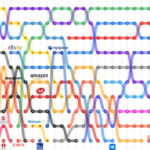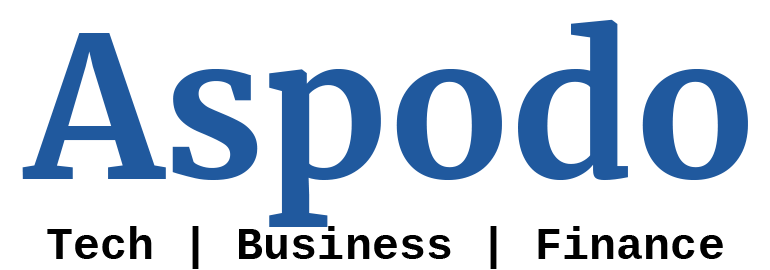![]()
#byAspodo | 1500+ Words - 8 Minutes Read Time.
Introduction
Artificial Intelligence (AI) is undeniably reshaping the global landscape, bringing about unprecedented advancements and efficiencies across numerous sectors. From automating repetitive tasks to enhancing decision-making processes, AI’s capabilities are vast and varied. However, as AI continues to integrate into our daily lives, concerns about job displacement and industry disruption have risen. Despite these concerns, several industries and roles are less susceptible to AI’s transformative power. This comprehensive guide will delve into the industries and job roles that are least likely to be affected by AI, exploring the unique human attributes that protect them from automation.
Why Certain Industries and Roles Are Less Affected by AI?
AI excels at tasks that involve data analysis, pattern recognition, and repetitive processes. However, it still struggles with tasks that require emotional intelligence, creativity, and complex problem-solving that involves human intuition and adaptability. Industries and roles that rely heavily on these uniquely human skills are less likely to be automated. These areas often involve nuanced understanding, empathy, and a level of personal interaction that AI cannot replicate.
Industries Least Affected by AI
1. Creative Arts

Art and Design: The creative arts are inherently human, relying on personal expression, emotional depth, and unique perspectives. While AI tools like generative design and digital art creation can assist artists, the core of artistic creativity remains human. Artists, graphic designers, and creative directors draw on their experiences and emotions to create work that resonates on a deep, personal level. The demand for original, thought-provoking art ensures that this field remains largely unaffected by AI.
Writing and Journalism: AI can generate content, but it lacks the ability to craft compelling narratives that engage and inform audiences on a profound level. Investigative journalism, creative writing, and storytelling require a human touch, with writers drawing on their insights and experiences to produce work that captivates readers. The ability to understand and interpret complex societal issues and present them in a relatable manner is a distinctly human skill.
2. Healthcare and Human Services

Mental Health Professionals: Psychiatrists, psychologists, and therapists provide care that involves deep emotional understanding and empathy. While AI can assist in diagnosing and offering preliminary assessments, the therapeutic relationship and individualized treatment plans are inherently human. Building trust and providing tailored emotional support are skills that AI cannot replicate, making mental health professionals indispensable.
Social Workers: Social workers address complex social issues, offering support to vulnerable populations and navigating intricate human emotions and social systems. Their roles require empathy, adaptability, and personal interaction, qualities that are difficult for AI to emulate. Social workers play a critical role in advocating for and empowering individuals and communities.
3. Skilled Trades

Electricians and Plumbers: If Artificial Intelligence Would take all the jobs, Electricians and Plumbers would be the last. These professions require hands-on problem-solving, adaptability to unique situations, and physical dexterity. Each job site presents distinct challenges that are difficult for AI to standardize and automate effectively. Skilled tradespeople bring practical knowledge and experience that AI currently lacks, making these roles less susceptible to automation. So if you’re an Electrician or a Plumber , don’t worry.
Carpenters and Builders: Custom construction work involves creativity, precision, and a deep understanding of materials and structures. While AI can assist in design and planning, the execution of bespoke projects requires skilled human labor. The ability to adapt to unforeseen issues and create tailored solutions is a hallmark of these professions, ensuring their resilience against AI disruption.
4. Education

Early Childhood Educators: Teaching young children involves nurturing, emotional support, and creating a stimulating learning environment. Early childhood educators inspire, engage, and address the unique needs of each child, relying on human connection and adaptability. These roles require patience, creativity, and a deep understanding of child development, qualities that are challenging for AI to replicate.
Special Education Teachers: Special education teachers work with students who have diverse learning needs, requiring a high level of empathy, patience, and personalized teaching strategies. Developing unique learning plans and fostering an inclusive environment are deeply human-centric tasks, making these roles less vulnerable to AI automation.
5. Performing Arts

Actors and Musicians: The performing arts require a level of creativity, emotional expression, and spontaneity that AI cannot replicate. Actors and musicians convey emotions and stories through their performances, connecting with audiences on an intimate level. The unique interpretations and personal touch that performers bring to their art ensure that these roles remain secure from AI encroachment.
6. Humanities and Social Sciences

Historians and Anthropologists: These professionals study human culture, history, and social behavior, relying on critical thinking and interpretive skills. Understanding historical contexts and cultural nuances requires a depth of insight that AI cannot match. Historians and anthropologists contribute to our understanding of human societies, making their roles indispensable.
Sociologists: Sociologists analyze social behaviors, structures, and functions, requiring a deep understanding of human interactions and societal dynamics. Their work involves qualitative research, field studies, and theoretical analysis, which demand human intuition and interpretative skills that AI lacks.
Roles Least Affected by AI
1. Leadership and Management

Executives and Managers: Effective leadership involves strategic thinking, decision-making under uncertainty, and inspiring teams. Executives and managers blend experience, intuition, and interpersonal skills to navigate complex organizational dynamics. While AI can support data-driven decision-making, the human touch in leadership is irreplaceable. Leadership requires the ability to understand and motivate people, manage conflicts, and make judgment calls in uncertain situations.
Project Managers: Managing complex projects requires coordination, negotiation, and conflict resolution, relying on human judgment and the ability to navigate interpersonal dynamics. Project managers leverage their experience to handle unexpected challenges and ensure project success. The ability to adapt and respond to changing project requirements is a key strength that human project managers bring to the table.
2. Research and Development

Scientific Researchers: While AI can assist in data analysis and hypothesis generation, the creativity and critical thinking involved in scientific research remain largely human activities. Researchers drive innovation through abstract thinking and challenging existing paradigms. Human curiosity and the ability to question and explore new ideas are essential in scientific discovery.
Engineers: Engineering roles that involve designing and developing new technologies require creativity, problem-solving, and a deep understanding of human needs and experiences. While AI can assist with simulations and repetitive tasks, engineers play a crucial role in innovation and practical application. The ability to think outside the box and develop novel solutions is a hallmark of engineering.
3. Customer Service and Relationship Management

Customer Relationship Managers: Building and maintaining relationships with clients requires empathy, personalized communication, and understanding of nuanced human needs. AI can assist with data analysis and routine interactions, but the core relationship-building is human-centric. Customer relationship managers provide tailored solutions and foster long-term loyalty, leveraging their interpersonal skills to build trust and rapport with clients.
Sales Representatives: High-level sales involve understanding customer pain points, negotiating deals, and providing personalized solutions. The human touch in understanding and responding to client needs is critical in these roles. Sales representatives use their interpersonal skills to build trust, close deals, and maintain customer relationships. The ability to understand and anticipate customer needs and provide customized solutions is a key strength of human sales professionals.
4. Healthcare Practitioners

Doctors and Surgeons: The medical field relies heavily on human expertise, experience, and the ability to make complex decisions under pressure. While AI can assist in diagnostics and surgical planning, the actual practice of medicine requires a deep understanding of human biology, patient interaction, and the ability to respond to unexpected challenges. The empathy and bedside manner of healthcare practitioners are irreplaceable by AI.
Nurses: Nursing involves providing direct patient care, emotional support, and coordination of care plans. The ability to build trust with patients and respond to their immediate needs is a critical aspect of nursing. AI can support nursing tasks, but the compassionate care provided by nurses is inherently human.
5. Legal Professionals

Lawyers and Judges: The legal profession involves interpreting complex laws, advocating for clients, and making judgment calls based on nuanced understanding of legal precedents and human behavior. While AI can assist with legal research and document analysis, the practice of law requires human judgment, ethical considerations, and persuasive communication skills. Lawyers and judges rely on their expertise and experience to navigate complex legal issues and deliver justice.
Mediators and Arbitrators: These professionals resolve disputes through negotiation and understanding of human dynamics. The ability to facilitate communication, build consensus, and find mutually agreeable solutions is a distinctly human skill. Mediators and arbitrators play a critical role in conflict resolution, leveraging their interpersonal skills to achieve fair outcomes.
Conclusion
As AI continues to advance and transform various industries, many roles remain secure due to their reliance on human creativity, empathy, and complex problem–solving. Industries such as the creative arts, healthcare, skilled trades, education, performing arts, and humanities, as well as roles in leadership, research, customer relationship management, healthcare, and legal professions, are least affected by AI. Understanding these areas can help individuals focus on developing skills that complement AI, ensuring they remain relevant and valuable in an increasingly automated world.
To remain competitive, individuals and businesses should emphasize continuous learning and adaptability, honing skills that AI cannot easily replicate. By leveraging human strengths in creativity, emotional intelligence, strategic thinking, and complex problem-solving, they can thrive in a future where AI and human capabilities coexist harmoniously. Investing in skills that AI cannot duplicate will not only secure one’s place in the job market but also contribute to a more balanced and collaborative future where technology and human ingenuity work together to drive progress.
FAQ
Industries least affected by AI include the creative arts, healthcare and human services, skilled trades, education, performing arts, and humanities. These fields rely heavily on human creativity, empathy, and complex problem-solving, which AI currently cannot replicate.
The creative arts are less affected by AI because they require emotional expression, personal experiences, and unique perspectives. While AI can assist with some aspects of design and creation, the core of artistic creativity remains inherently human.
Roles in healthcare that are least impacted by AI include mental health professionals, doctors, surgeons, nurses, and social workers. These roles require deep emotional understanding, empathy, and the ability to make complex decisions and build trust with patients.
No, AI cannot easily replace skilled trades like electricians and plumbers. These professions require hands-on problem-solving, adaptability to unique situations, and physical dexterity, which are challenging for AI to automate effectively.
Leadership roles are less vulnerable to AI automation because they involve strategic thinking, decision-making under uncertainty, and inspiring and managing teams. These roles require a blend of experience, intuition, and interpersonal skills that AI cannot replicate.
![]()
#byAspodo | 1500+ Words - 8 Minutes Read Time.







